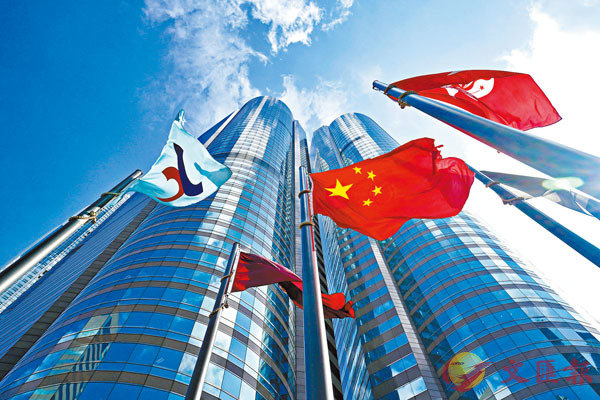 ● 本港多個政黨建議政府加股票印花稅率。圖為港交所。 資料圖片
● 本港多個政黨建議政府加股票印花稅率。圖為港交所。 資料圖片【原文】美國紐約州多位議員表示,有興趣重新開徵股票印花稅,以改善新冠疫情下稅收大減問題;本港亦有多個政黨建議政府加股票印花稅稅率,緩解庫房緊絀壓力。本港去年經濟實質下跌6.1%,失業率升至6.6%的16年新高、近25萬人無工開;而去年本港股市衝上3萬點勁升7.5%,金融行業賺得盆滿缽滿,政府此時若適當增加股票印花稅稅率,無疑可以緩解庫房壓力,增加救濟失業人士能力,舉措合情合理合度,亦是政府以民為本、施政有擔當的表現,相信投資者會理解支持。香港國安家好、中概股回歸及北水湧港下,股市只要有錢賺,加股票印花稅率影響可謂九牛一毛,不會影響本港金融中心競爭力。
為應對新冠疫情衝擊,政府接連推出多輪紓困措施,財政儲備急減近三成至8,000億元,而預算赤字升至3,000億元。為緩解庫房緊絀壓力,經濟學者莊太量、自由黨立法會議員鍾國斌、新民黨主席葉劉淑儀等,先後建議政府可考慮加股票印花稅率;但金融服務界及部分立法會議員則表示反對,指此舉是「殺雞取卵」。
香港向來奉行簡單低稅制,稅基狹窄,回歸後港府曾分別於2000年和2006年就擴闊稅基諮詢公眾,但最後皆因反對聲浪太大無功而返。現時政府主要收入來源為薪俸稅、利得稅、賣地收入及印花稅等。目前本港股票印花稅率為0.1%,與內地相同,比新加坡及英國低,其中英國的股票印花稅率高達0.5%,是香港的5倍。
本港去年度印花稅佔庫房總收入11.2%,當中約一半收入來自股票印花稅、約為332億元。據政府預測,香港2020至2021年財年的股票交易印花稅收入為350億港元,仍為本港重要收入之一。有測算指,若股票印花稅上調稅率至0.2%,庫房的印花稅收入就可以翻倍,對緩解本港財政緊絀壓力顯然補益不小。
那麼,加股票交易印花稅稅率是否會導致本港股市競爭力大減呢?不少投資界人士認為,投資者進入一個市場,主要是看其回報,稅收高低並非主要因素,如同本港樓市,有多重辣稅也難阻投資者進入。以英國為例,其股票印花稅雖高達0.5%,但倫敦依然是歐洲金融中心。美國稅制複雜,當局按照股東稅階對其股息徵收0%到20%的稅項,並將買賣股票所得分為長期、短期兩類,前者照稅階徵收0%、15%或20%的資本增值稅,後者則直接計算成為普通入息課稅,但這些徵稅舉措並未「殺雞取卵」影響其金融競爭力。
本港股市在全球央行放水、中概股回歸、北水湧港等多重利好下,發展前景看好,政府只要做好政策諮詢工作,擇機加股票交易印花稅稅率,可達至多贏,政府不應再猶豫。 ( 摘錄自香港《文匯報》社評 2021-2-11)
Raise stamp duty on stock transactions to narrow budget deficit
【譯文】As lawmakers in New York are discussing the return of financial transaction taxes in a bid to relieve pressure during the Covid-19 pandemic, political parties in Hong Kong are also proposing the same move to the government. In 2020, Hong Kong's real GDP fell by 6.1 per cent, whereas the unemployment rate rose to a 16-year high of 6.6 per cent, with nearly 250,000 people unemployed. At the same time, the Hang Seng Index surged by 7.5 per cent to 30,000. Considering the staggering gains made by the financial sector during this period, a reasonable hike in stock transaction stamp duty rate at this time would undoubtedly be supported, as taking off pressure from the public coffers could free up more resources to help the unemployed. It would also be a good demonstration of the government's resolve to serve the public. With a stable social environment, the return of foreign-listed Chinese enterprises, and the continuous surge of Chinese money into the Hong Kong stock market, the increase in stamp duty would only be a tiny fraction of the money that is to be made by investors. The stamp duty hike should have very little impact on the competitiveness of Hong Kong as a financial centre.
In response to the economic impact of the Covid-19 pandemic, the government launched several rounds of relief measures. The fiscal reserves have consequently plummeted by nearly 30 per cent to HK$800 billion and the budget deficit has risen to HK$300 billion. To alleviate the tight pressure on the treasury, economist Terence Tai-Leung Chong, Liberal Party legislator Felix Chung Kwok-pan, and New People's Party leader Regina Ip Lau Suk-yee have all proposed to the government that the stock stamp duty rate should be increased. The proposal was met with objections from the financial services sector however, and some legislators argued that the plan is sacrificing long-term interests for puny short-term gains.
Hong Kong has always been practising a simple and low tax regime with a narrow tax base. The Hong Kong government consulted the public on widening the tax base in 2000 and 2006 respectively, but both attempts were unsuccessful due to fierce opposition. At present, the government's main sources of revenue are salaries tax, profits tax, land sales, and stamp duties. The current stock transaction stamp duty rate of Hong Kong stands at 0.1 per cent, the same as mainland China and lower than that of Singapore and the UK. The rate in the UK is as high as 0.5 per cent, which is 5 times higher than Hong Kong.
Stamp duties accounted for 11.2 per cent of the government's total revenue last year, half of that, which is about HK$33.2 billion, comes from stock transactions. According to the government's forecast, Hong Kong's stock transaction stamp duty income from fiscal year 2020 to 2021 will still be an integral source of revenue, amounting to HK35 billion. Some estimates indicate that if the stock transaction stamp duty rate is increased to 0.2 per cent, the government's income from stamp duties would be doubled. Apparently, a stamp duty hike would alleviate a great deal of pressure on Hong Kong's public finances.
So, will increasing the stock stamp duty weaken Hong Kong's competitiveness as a financial hub? Many people in the investment community believe that the most important factor that draws investors into a market is investment returns, not tax rates. Just like the Hong Kong property market, investors keep flocking in no matter how much extra stamp duties are added. Take the United Kingdom as another example. Although its stock stamp duty is as high as 0.5 per cent, London is still the financial center of Europe. As for the United States, the tax system is much more complicated. A dividend tax ranging from 0 per cent to 20 per cent is levied depending on the shareholder's individual tax bracket. Meanwhile, gains made from stocks are also categorised into long-term and short-term. Long-term capital gains tax of 0 per cent, 15 per cent, or 20 per cent is levied depending again on the shareholder's tax bracket. Short-term capital gains tax is the same tax rate as the shareholder's ordinary income tax rate. Such a complex tax system did not seem to have affected the United States' competitiveness in finance.
As central banks worldwide continue to boost liquidity, combined with other factors such as the return of foreign-listed Chinese companies and influx of Chinese investors, the Hong Kong stock market still has a very promising outlook. As long as the government does its job on public consultation, increasing the stock transaction stamp duty should achieve an all-win situation. The government should no longer hesitate.●Jeffrey Tse
Exercise
1. 財政儲備
2. 恒生指數
3. 中概股(中國概念股)
4. 股東
5. 藍籌股
Answer
1. the fiscal reserves
2. Hang Seng Index
3. China concepts stock
4. shareholder
5. blue chips

